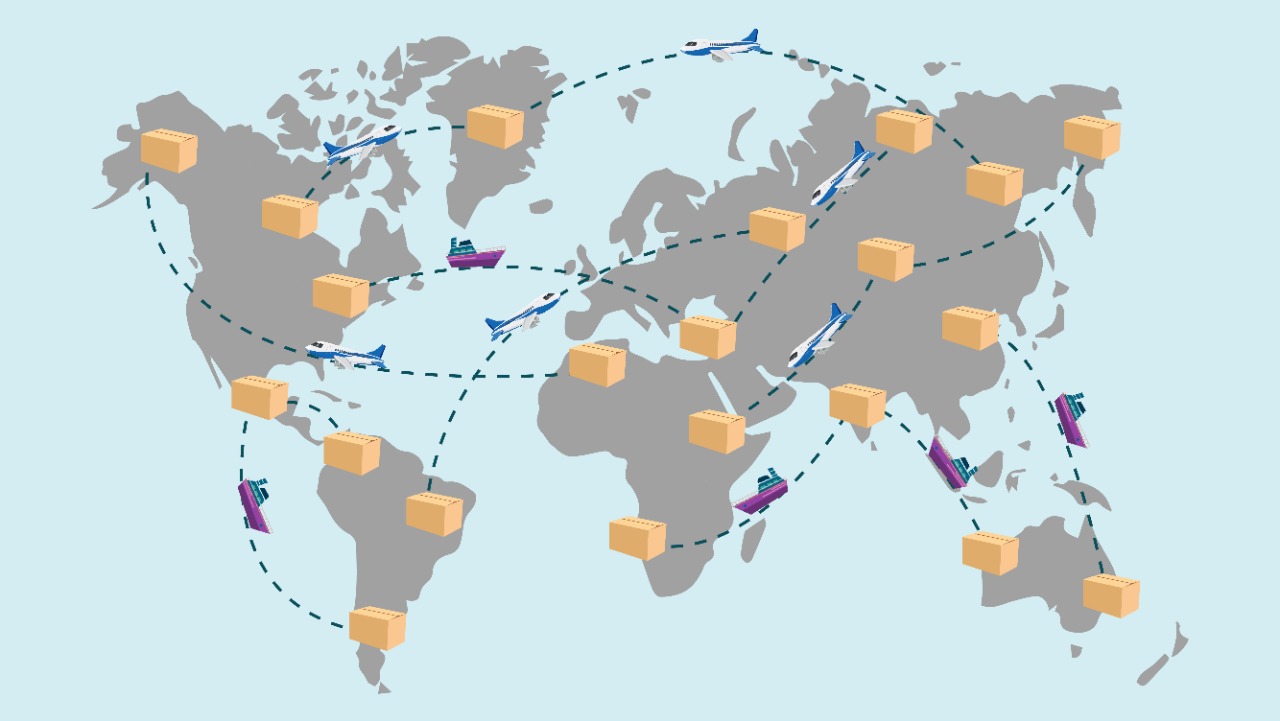
Trade refers to the economic concept which involves buying and selling of goods and services, with compensation being paid by the buyer to the seller. International Trade is a broader concept which refers to the exchange of goods, services, knowledge, and capital between two or more countries.
Ever since the dawn of civilization traces of international trade can be found but over the last two decades, international business has seen rapid and sustainable growth. Since 1950 the world product trade has been expanding by more than 6 percent every year. According to the World Bank stats international export’s contribution to the country's GDP has increased from 12 percent in 1960 to 30 percent in 2015.
Over the years our own country has introduced various schemes to increase international trade and foreign direct investment. Plans such as made in India are one such example. Thus it becomes very important to understand why international trade is important.
Utilization of Raw Materials - We all know that no country is completely independent, they lack some of the other resources. For example, India, though it is rich in the agricultural output it lacks natural resources such as oil. While countries such as Saudi Arabia have an abundance of crude oil for exports. Without international trade countries on one hand would not be able to capitalize on these raw materials and on the other hand, no country will be able to sustain at all.
Increased Revenues - One of the basic advantages of international trade is that it gives companies the opportunity to increase their customer/client base. With each country, they enter their market expands and thus opens a pathway for companies growth and increased revenues.
Global Growth and Increase in GDP - International trade has been an important factor in promoting economic growth throughout the globe. As pointed out in the beginning, according to World Bank stats international export’s contribution to the country's GDP has increased from 12 percent in 1960 to 30 percent in 2015. The availability of raw materials, international exports, foreign investment, trade agreements, etc. are a few examples that contribute to increased GDP.
Economies of Scale - When a company participates in international trade, its market place is just not their local or national market but the international market which is much larger. As a result, more consumers will want their products and services. This results in lower cost and helps companies and nations to achieve economies of scale.
Disposal of Surplus Products - Another important advantage of international trade is that it gives nations/ companies to dispose of those products which are in the decline stage in the domestic market into the international market. This not only ensures minimal waste but also gives a new product cycle to the product.
Inflation and Price Moderation - The benefits of export are readily self-evident. Imports can also be highly beneficial to a country because they constitute reserve capacity for the local producers. Without imports, there is no incentive for domestic firms to moderate their prices. The lack of imported product alternatives forces consumers to pay more, resulting in inflation and excessive profits for local firms. This development usually acts as a prelude to workers' demand for higher wages, further exacerbating the problem of inflation.
Increased Employment - Since the market for the countries’ goods widens with the help of international trade, the job opportunity, and employment scale increases. Foster of international trade always attracts new players in the game and with the establishment of new industries, it’s natural that employment increases.
Improved Standard of Living – International trade affects the standard of living in two ways. First, since the GDP increases, it results in increased per capita income. This enables the population to spend more and ensure that not only their basic needs but desires are also met. This is backed by the second way i.e. with international the availability of options increases for consumers. The consumers not only get to select from local brands but imported brands as well. Both factors combine to improve countries' standard of living.
Service Sector Trade - Conventionally the word trade was used to denote the exchange of physical goods only. But with the progress of time, the scope of trade expanded and trade of service fell into its ambit. The exchange of services is one of the emerging sectors. Because of this India saw a rise in the IT sector. Over the years many foreign MNCs ended up setting their offshore companies in India because of its service expertise. All this further helped India's growth.
Benefits from Currency Exchange - As we all know the exchange rates are very volatile, international trade provides opportunities to firms to benefit from such volatility. Suppose an Indian firm conducts business in the American market. So when such a firm receives payments in dollars and converts that into Indian currency, they can easily profit from the exchange rate.
Enhanced Reputation - A domestic firm can easily boost its reputation with international trade. Success in one country can boost success in adjacent countries. All this not only improves the company's reputation but boosts the company's credibility in the home as well as the foreign market.
Apart from all advantages, the international market does have certain disadvantages and uncertainties. If a firm is able to capitalize on the advantage of going international their future can be very bright.
